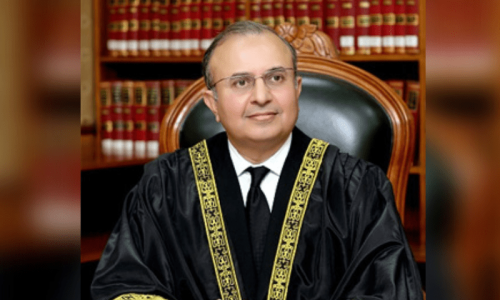
UNITED NATIONS: Syrian President Bashar al-Assad is refusing to take telephone calls from UN chief Ban Ki-moon, as the UN Security Council headed into a weekend of talks on a resolution to condemn his crackdown.
Ban tried to call Assad on Thursday but was told the Syrian leader was “not available,” UN spokesman Martin Nesirky told reporters.
At least 1,100 people have been killed since the Syria protests erupted in March and Ban has become and outspoken critic of the Syrian leader.
After news of the snub came out, Ban reaffirmed in a statement that “the use of military force against civilians is unacceptable” and expressed deep concern at the heavy toll on civilians, particularly after a new operation in the northwestern town of Jisr al-Shughur.
“The secretary-general remains convinced that the only way to heed the calls of the Syrian people for peaceful change is by engaging in a fully inclusive national dialogue and the launching of genuine reforms,” Nesirky said.
The UN leader has had three stormy telephone calls with Assad since protests started, and has described the crackdown as “violent repression.” Last month, Ban said Assad had complained to him: “Why do you keep calling me?” Assad promised in one call to let UN human rights investigators probe events in Syrian protest cities such as Daraa, but the team has not been allowed into Syria.
The United States called for greater international pressure on Syria but UN Security Council diplomats said no progress had been made in talks on a proposed European resolution condemning Syria's deadly crackdown.
Russia and China have strongly opposed the resolution and as permanent members of the Security Council could veto any resolution brought to a vote.
With Britain, France, Germany and Portugal showing growing frustration at opposition from some other members of the 15 council members, talks were set to be extended through the weekend.
South Africa, Brazil and India have expressed strong reservations about the European resolution, which has been amended in a bid to win them over.
New talks were arranged for Saturday and if necessary will go on Sunday too. The European countries say they would like a council vote as soon as possible, but their efforts are being frustrated by the lack of support from the new powers.
European diplomats say the new deaths in Syria and the flow of refugees into Turkey have made Security Council action more urgent. Turkey's Prime Minister Recep Tayyip Erdogan, an Assad ally, deplored the “atrocity” of killing protesters.
With the deteriorating events, “it really is time for these leading democracies and would-be permanent (Security Council) members - Brazil, South Africa and India - to at least start discussing what the Security Council's response could be,” said one Western diplomat.
The European countries say they have at least nine votes on the council and particularly hope South Africa and Brazil could be swayed to add to the total.
“The Security Council's complete silence in the face of mass atrocities against the people of Syria is emboldening the Syrian government in its bloody crackdown,” said Philippe Bolopion, UN director at Human Rights Watch.
“A veto by Russia and China to protect the Syrian government and block efforts to stop the killings would be a serious betrayal of Syria's beleaguered citizens.”











































Dear visitor, the comments section is undergoing an overhaul and will return soon.